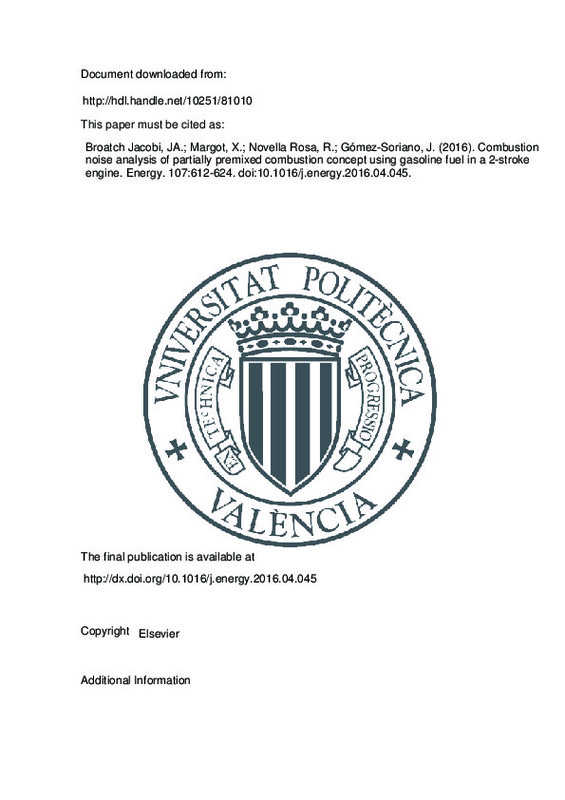JavaScript is disabled for your browser. Some features of this site may not work without it.
Buscar en RiuNet
Listar
Mi cuenta
Estadísticas
Ayuda RiuNet
Admin. UPV
Combustion noise analysis of partially premixed combustion concept using gasoline fuel in a 2-stroke engine
Mostrar el registro completo del ítem
Broatch Jacobi, JA.; Margot, X.; Novella Rosa, R.; Gómez-Soriano, J. (2016). Combustion noise analysis of partially premixed combustion concept using gasoline fuel in a 2-stroke engine. Energy. 107:612-624. https://doi.org/10.1016/j.energy.2016.04.045
Por favor, use este identificador para citar o enlazar este ítem: http://hdl.handle.net/10251/81010
Ficheros en el ítem
Metadatos del ítem
| Título: | Combustion noise analysis of partially premixed combustion concept using gasoline fuel in a 2-stroke engine | |
| Autor: | ||
| Entidad UPV: |
|
|
| Fecha difusión: |
|
|
| Resumen: |
In the last decade, different advanced combustion concepts based on generating totally or partially
premixed conditions have been investigated in CI (compression ignition) engines with the aim of
achieving lower NOx ...[+]
|
|
| Palabras clave: |
|
|
| Derechos de uso: | Reserva de todos los derechos | |
| Fuente: |
|
|
| DOI: |
|
|
| Editorial: |
|
|
| Versión del editor: | http://dx.doi.org/10.1016/j.energy.2016.04.045 | |
| Código del Proyecto: |
|
|
| Agradecimientos: |
|
|
| Tipo: |
|







![[Cerrado]](/themes/UPV/images/candado.png)


